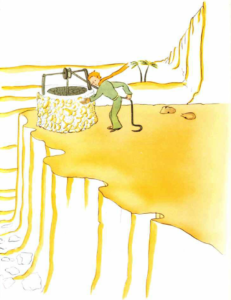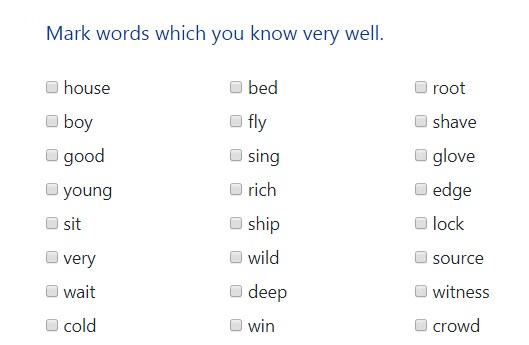Present perfect
Lesson 3
When we want to say that something happened or is completed, we use the verb to have and we put –ed at the end of a verb. Information about when, where, how it happened is usually not important. What is important is that it happened or the activity is completed. This grammar is called the present perfect.
There are some verbs which have their special form for the present perfect. There are 47 of these verbs for Level 3. These verbs are
been, broken, built, chosen, come, cost, cut, done, drawn, drunk, driven, eaten, fallen, forgotten, found, frozen, got, given, gone, grown, had, heard, hidden, hit, kept, known, left, learnt, lost, made, met, paid, put, read, run, said, seen, sold, sent, slept, taken, thought, told, understood, woken up, won, written.
I have seen it. I have never driven this car. Have you ever been there? I haven’t paid yet.
You can also use short forms I’ve, you’ve, he’s, she’s, it’s, we’ve, you’ve, they’ve. For example I’ve seen it.
Present Perfect Past Simple
I have seen it. I saw it yesterday.
Have you paid? Did you pay in dollars?
She hasn’t spoken yet. She didn’t speak to me.
We use both the present perfect and past simple when we speak about the past. It is better to use the present perfect when it is important that something happened. We use the past simple when it is also important when, how or where it happened. We also use the past simple when we tell a story.
This grammar is called the present perfect because we use it when we speak in the present about something which was completed in the past. If something is perfect, it is completed.
I have bought it. – It means that I bought it and that is important. It is not important when, how or why.
I have seen her. – It means that I saw her and that is important. It is not important when, how or why.
I have been there. – It means that I was there and that is important. It is not important when, how or why.
We use the present perfect in about 3% of sentences in spoken English.
I have never drawn a sheep.
We have woken up the well.
I haven’t had any sleep.
You can see more examples in the book The Little Prince.

